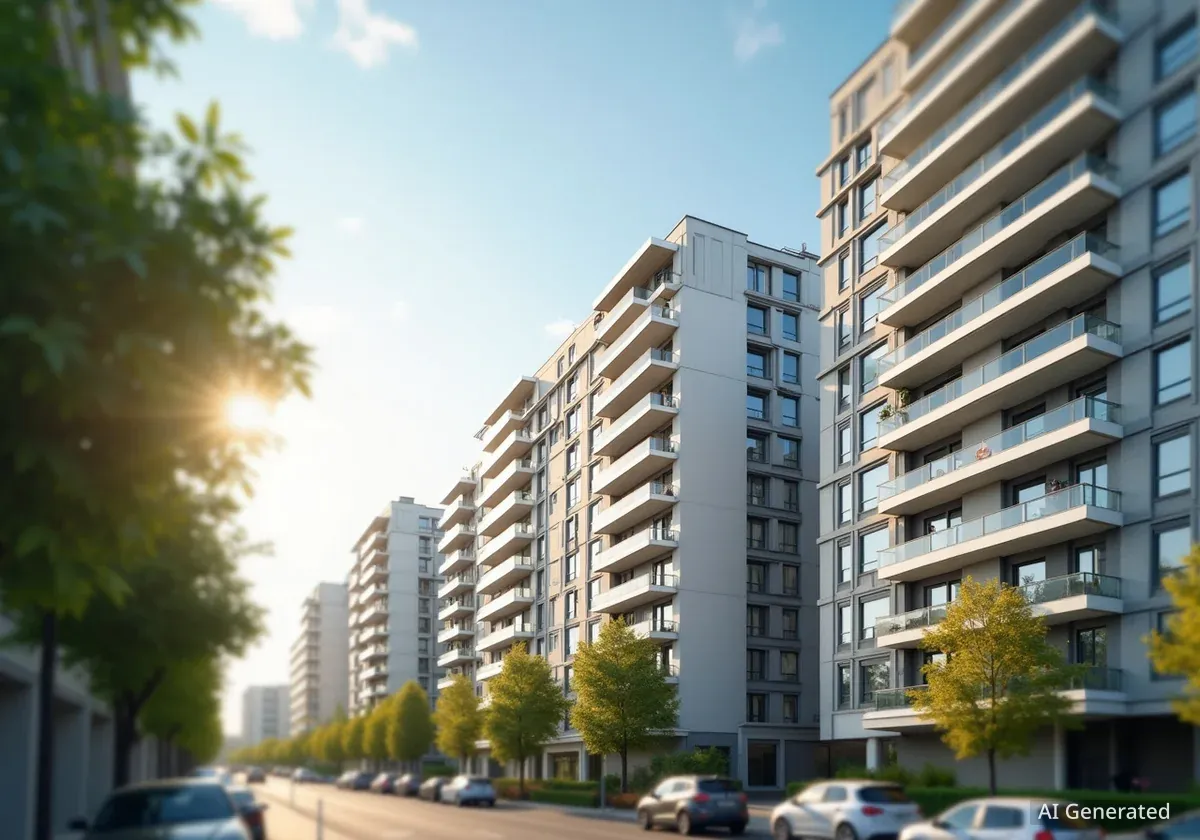Portugal's government has implemented significant policy changes aimed at curbing the country's housing crisis, including higher property transfer taxes for non-resident buyers and a longer residency requirement for citizenship applications. These measures are designed to cool a real estate market where soaring prices, driven by foreign investment, have made housing increasingly unaffordable for local residents.
Key Takeaways
- Portugal has increased the property transfer tax specifically for non-resident buyers to address housing affordability.
- The minimum residency period required to apply for Portuguese citizenship has been doubled from five years to ten years.
- These changes primarily target the high-demand luxury property markets in cities like Lisbon and Porto.
- The government's goal is to balance the economic benefits of foreign investment with the housing needs of its local population.
New Financial and Residency Requirements Explained
The Portuguese government has introduced a two-pronged strategy to reshape its housing market. The first part involves a direct financial disincentive for foreign property investors. A new, higher property transfer tax will now apply to non-residents purchasing real estate in the country. This tax hike is specifically structured to affect the upper end of the market, targeting luxury and high-demand properties that are frequently acquired by international buyers.
The second major change affects the path to citizenship. Previously, foreign nationals could apply for Portuguese citizenship after residing in the country for a minimum of five years. Under the new legislation, this requirement has been extended to ten years of continuous residency. This move is seen as a direct response to criticism that residency-for-investment schemes were being used as a fast track to EU citizenship without genuine integration into Portuguese society.
The Golden Visa Program Context
Portugal's Golden Visa program, which offered residency permits in exchange for significant financial investment (often in real estate), was a major driver of foreign capital. While the program has been recently scaled back, its legacy contributed to the current housing pressures. The new ten-year residency rule for citizenship aims to ensure that individuals seeking a Portuguese passport have established long-term, meaningful ties to the country.
The Housing Affordability Crisis in Portugal
For several years, Portugal has been a top destination for international investors, tourists, and expatriates, drawn by its pleasant climate, cultural attractions, and perceived affordability. This popularity, however, has had a profound impact on the domestic housing market, particularly in urban centers like Lisbon, Porto, and the coastal Algarve region.
A surge in demand from foreign buyers has led to a dramatic increase in property prices. This has created a significant disparity between what international investors are willing to pay and what local Portuguese citizens can afford. The situation has pushed many residents out of the cities where they work and grew up.
A Stark Price Difference
Data from Portugal's National Statistics Institute (INE) highlights the market imbalance. According to their findings, foreign buyers, on average, have been paying nearly double the price for property compared to local Portuguese buyers. This statistical evidence underscores the market pressure that the new government policies are intended to alleviate.
The housing shortage is not solely due to foreign demand. A limited supply of new housing construction and bureaucratic hurdles in obtaining building permits have also constrained the market. The combination of high demand and low supply has created a perfect storm for housing unaffordability.
Government's Broader Strategy for Housing Relief
The increased taxes and stricter residency rules are part of a wider government initiative to tackle the housing crisis. Officials have acknowledged that simply discouraging foreign investment is not enough. To address the supply side of the equation, the government has announced plans to streamline and simplify the process for obtaining building permits for new residential projects.
By reducing red tape, the hope is to accelerate the construction of new homes and increase the overall housing stock, which should eventually help stabilize prices. Furthermore, the government is introducing measures to support local buyers.
Incentives for Local Buyers
To help its citizens compete in the challenging market, Portugal is developing new tax incentives aimed at first-time homebuyers. These programs are expected to focus particularly on younger individuals and families who are currently struggling to get onto the property ladder. The policy aims to level the playing field and foster a more sustainable and equitable housing market for the long term.
Implications for Investors and Future Residents
These new regulations have clear consequences for foreigners considering investing in or moving to Portugal. Tourists and short-term visitors will not be affected, but anyone with long-term plans will need to re-evaluate their strategy.
For prospective real estate investors, the increased property transfer tax will directly impact the cost of acquisition and could reduce the potential return on investment for certain properties. It is now more critical than ever for investors to conduct thorough financial due diligence and consult with local real estate and legal experts to understand the new tax landscape.
Planning for Long-Term Residency
Individuals who planned to move to Portugal with the goal of obtaining citizenship within five years will now face a much longer timeline. The new ten-year requirement demands a more substantial and prolonged commitment to living in the country. This change may alter the decisions of those who saw Portugal primarily as an accessible entry point to EU citizenship.
For those still committed to investing, opportunities may now lie outside the traditional hotspots. Real estate experts suggest exploring alternative regions where property prices have not been as heavily inflated by foreign demand. Areas to consider include:
- The Alentejo region: Known for its vast landscapes and more relaxed pace of life, this area offers more affordable property options.
- Interior Portugal: Smaller cities and rural areas away from the coast provide a different lifestyle with significantly lower entry costs for property.
These regions offer a chance to experience Portuguese culture while avoiding the highly competitive and expensive markets of Lisbon and Porto. As the government works to boost construction, these less-developed areas may also see new housing opportunities emerge in the coming years. Portugal's policy shift reflects a delicate balancing act between attracting beneficial foreign capital and ensuring its own citizens have access to affordable housing.





